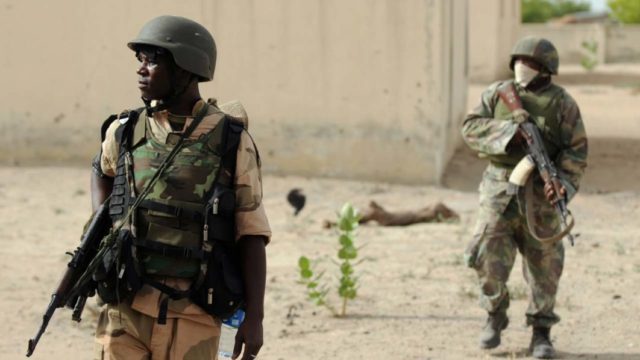By Riches Soberekon
Nigerian security forces have successfully rescued dozens of captives, primarily women and children, who were held by Islamic extremist rebels in the northeastern region of the country.
The army announced on Monday that a total of 25 captives were freed during “clearance operations” conducted by troops in the Gwoza district of Borno state, which has been heavily affected by jihadi violence since 2009 when Boko Haram insurgents began their insurgency.
The initial rescue operation took place on Saturday in Gobara village, where 14 captives were freed. The following day, troops raided a rebel hideout in Gava village, resulting in the liberation of 11 additional captives. Both villages are located approximately 130 kilometers (80 miles) away from the state capital, Maiduguri.
Army spokesperson Onyema Nwachukwu shared pictures of the rescued hostages, including young children, who were released by the army. Many of them appeared malnourished and were wearing worn-out clothing, indicating that they may have been held captive for a significant period of time.
Nwachukwu stated that all of the rescued individuals are currently in the custody of the troops and undergoing profiling. He described these operations as part of the ongoing and determined efforts to eliminate the remaining Boko Haram terrorist enclaves in Borno and other affected states.
In a separate operation, seven members of a “Boko Haram terrorist family,” consisting of three adults and four children, voluntarily surrendered to the troops on Sunday.
Boko Haram, which translates to “Western education is a sin” in the local Hausa language, initiated their insurgency in 2009 with the goal of establishing Islamic Shariah law in Nigeria. The group has since splintered into different factions, with the most powerful faction backed by the Islamic State.
They frequently target women, children, and security forces in remote areas of northeastern Nigeria. The extremist violence has resulted in the deaths of at least 35,000 people and the displacement of 2.1 million individuals, with its impact extending to neighboring Cameroon, Chad, and Niger.




































